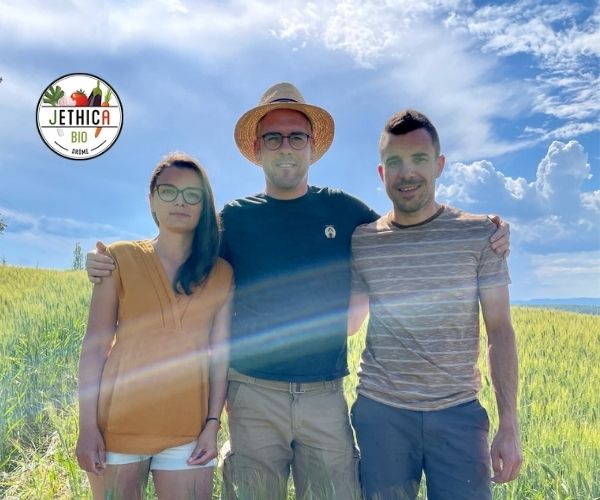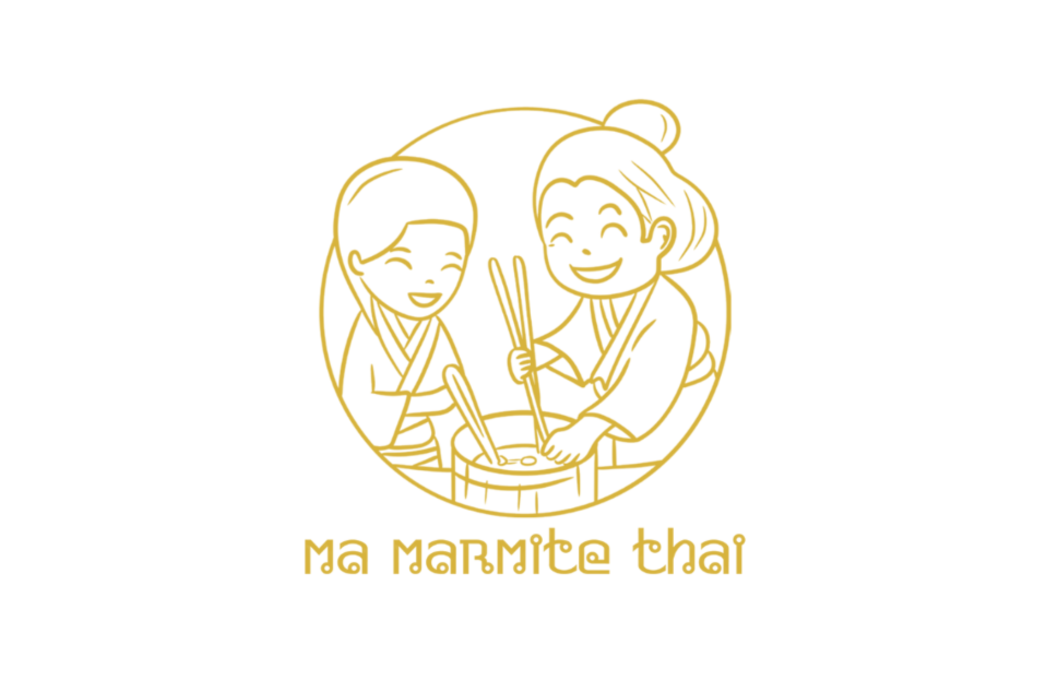Customer testimonials
JETHICA cannery: making the pleasure of eating well locally, healthy and sustainable accessible
04
Jan

Published on : 04/01/2022
After having followed the training "To lead a canning activity" in March 2021 at the CTCPA Avignon, the three friends Thibaud Camille and Jérémy launch their canning factory JETHICA in Montmeyran (26). Thibaud, co-director, comes back with us on this project.
How was the JETHICA cannery born?
JETHICA was born from a common ambition between friends. After several years spent as a store manager in the retail industry and as a food engineer for Camille, we decided to open our local cannery, anxious to act for a more responsible and sustainable food!
Why did you choose to open a cannery?
Canned food is booming! For a few years now, canned food has been getting a "new lease on life". The advantage? Canned food can be cooked in 100% recyclable glass jars! For us, this was the best option because we wanted to participate in the circular economy.
How did you hear about the CTCPA?
It was important to train before opening our cannery. Camille is an agri-food engineer so she chose to train in autoclave operation at the CTCPA. As for me, I followed the training course "Conducting a canning activity" in order to learn the job of a canner. I followed it in March 2021 on the site of the CTCPA in Avignon.
We chose the CTCPA because Camille knew that the CTCPA is the agri-food technical center specialized in preservation techniques. We looked for a training and came across yours via my personal training account.
What did you think of the training "Conducting a canning business" and the support of the CTCPA?
It was great training! Ensuring sanitary safety is the basis. The training allowed me to be reassured about the hygiene and quality standards in the food industry.
Maxime GOUSSELOT (assistant project manager) and Christine DECANIS (project manager) shared their experience with us. It was very interesting because they were able to guide us on the questions of taste, texture, chewiness... in accordance with sterilization or pasteurization. They have a good vision of the customers' expectations!
Being new to the business, I had a lot to learn during this training, but I found it suitable for all levels.
Even today, Christine and Maxime remain available and reactive! They give me an answer to every question. This is a real plus.
Tell us more about JETHICA...
We have chosen to open our cannery/bocalerie which will aim to highlight all the market gardeners and partners within 100 km of our workshop based in Montmeyran (26) with a single objective: TASTE!
Our mission? To provide customers with tasty, local, healthy and sustainable food. To create a community/network that promotes local, healthy and sustainable eating. To promote the origin, the manufacturing methods and costs, the ecological footprints of our activity and the territory. To have the smallest possible environmental footprint.
For that, we propose home-made jars from the spreadable to the dessert. We choose our recipes according to the seasons, the local and organic harvests. Five days will separate the harvest from the bottling. The objective? To keep a maximum of freshness, preserve nutrients and minerals. André PIERRE (former starred chef) brings us his technical knowledge on the conception of these products. We plan to offer 20 to 30 different recipes in the first year.
90% of our supply is made within 100 kilometers of our workshop, using the snail method. We really want to limit our environmental impact and maintain a human link with the farmers. We make a point of visiting each of the farms we work with. As the grandson of a farmer, this is very important to me!
In addition, we would like to offer contract manufacturing for canneries that are saturated during the peak periods in the Drôme.
The whole will take place in our workshop of 200 m² composed of offices, a storage space, a cold room (50 m²) and a cooking space with autoclave (30 m²).
Visit our website to learn more: Jethica.com !
What about revenue?
We elaborate our recipes with André-Pierre Magnard who is a talented and recognized chef. A true and sincere man who loves cooking and shares it generously.
We propose among others: beet hummus, pumpkin soup, carrot spreads, tomato soup, eggplant riste...
Our jars will be sold via our website, in supermarkets, in organic stores and in local institutions. We would also like to sell them on markets.
What are your next steps?
The installation of our workshop will be finished at the beginning of February. From the second half of February, we will start the production for a marketing in March!
_
Train as a canner with the CTCPA: Cannery training: learn to make cans (CPF) (ctcpa.org). This training is 100% financeable via your personal training account.
Contact JETHICA
Website : JETHICA| Responsible Local Eating | Montmeyran
Facebook: JETHICA - Home | Facebook
Instagram: JETHICA (@jethicabio) - Instagram photos and videos
Twitter: JETHICA (@JethicaBio) / Twitter
Linkedin: (1) JETHICA : Presentation | LinkedIn
Contact: thibaud@jethica.fr – 06 82 61 27 54
Contact CTCPA
Christine DECANIS - cdecanis@ctcpa.org
Maxime GOUSSELOT - mgousselot@ctcpa.org
CTCPA Avignon - avignon@ctcpa.org
Training - contact.formation@ctcpa.org






